In today’s competitive digital landscape, having the right content optimization tools can make all the difference between ranking success and invisibility. These specialized tools help improve your content’s chances of ranking well by identifying relevant keywords, analyzing competitors, and ensuring your writing meets both search engine and reader expectations. With AI now deeply integrated into SEO strategies, choosing the right tools has become even more crucial for staying ahead in 2025.
Top 7 content optimization tools for SEO success
Surfer SEO: Best for real-time SEO writing guidance
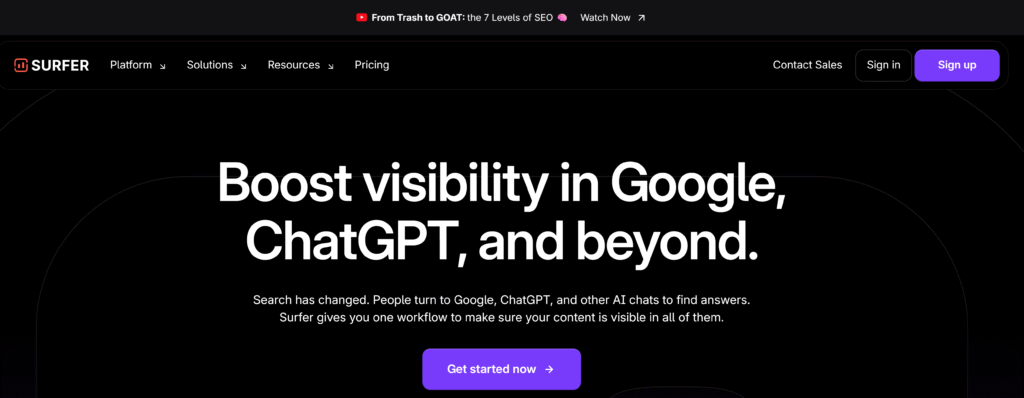
Surfer SEO stands out for its ability to provide immediate, actionable guidance while you write. The platform analyzes over 500 on-page SEO signals to determine what contributes to high rankings, giving you real-time feedback on content optimization. It identifies content gaps and fine-tunes your writing around entities and topics relevant to both Google and AI assistants like ChatGPT. With features like AI Content Detector and Humanizer, it helps maintain content quality standards while ensuring your work passes AI detection. Starting at $79/month, Surfer serves over 150,000 content creators daily, making it ideal for those seeking data-driven optimization.
Writesonic: Best for AI-generated marketing and blog content
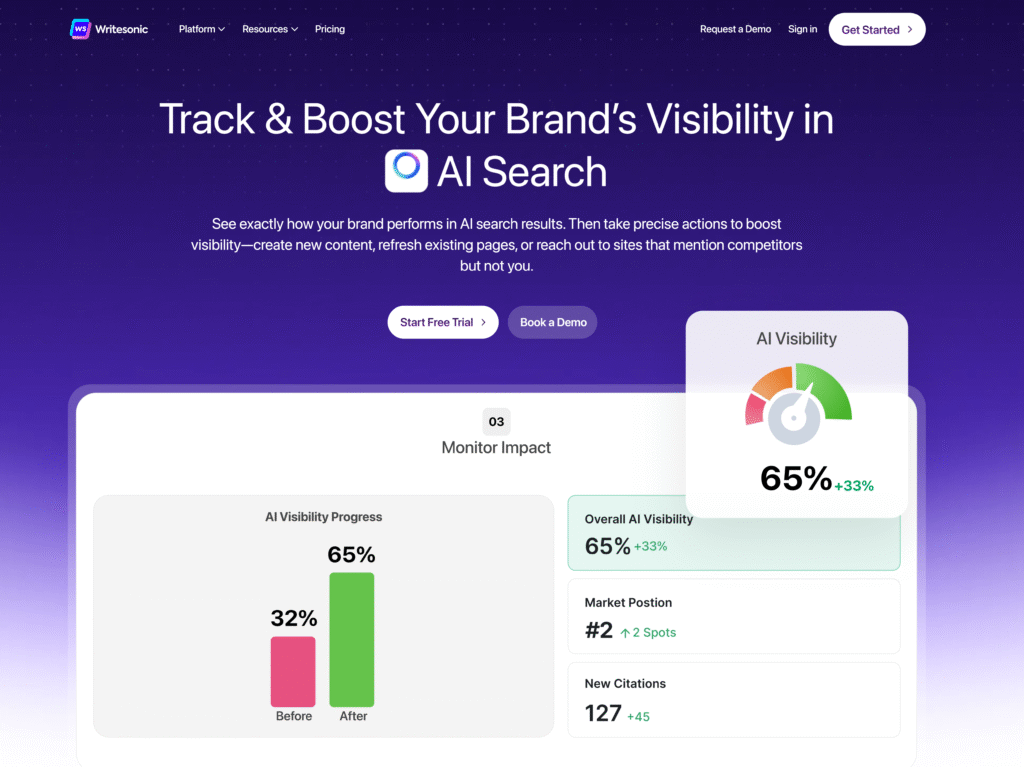
Writesonic excels at creating various content types including blog posts, ads, landing pages, and product descriptions. What makes it stand out is its combination of AI power with human-like quality, delivering error-free content that converts. The platform offers over 60 features, including tools to track brand visibility across AI search platforms. Its Article AI Writer can generate a 2000-word post in under 5 minutes, complete with keywords, topic suggestions, and a full outline. For marketing teams needing diverse content formats optimized for both traditional and AI search, Writesonic offers exceptional value.
Rayo: Best for fast, optimized content writing
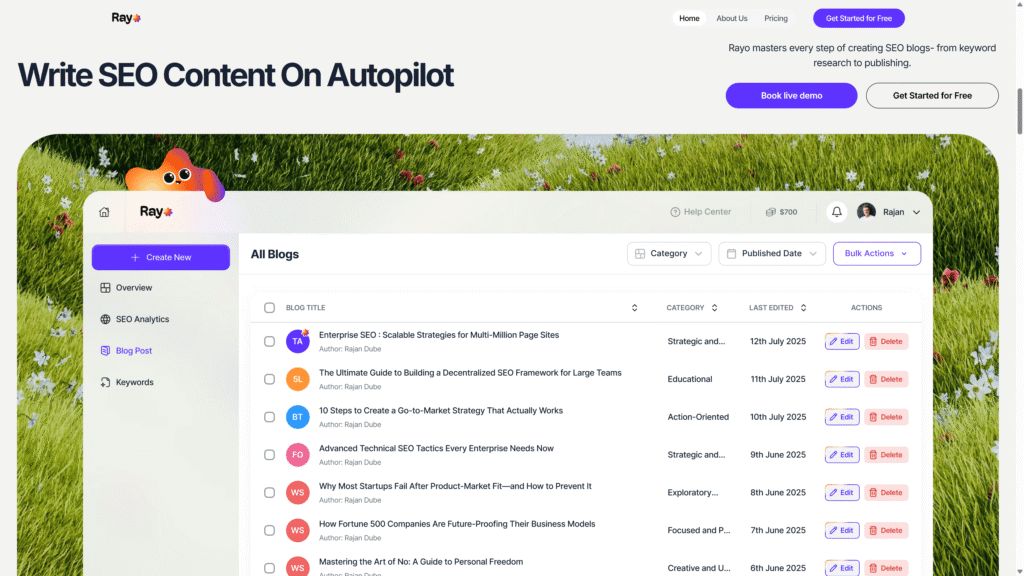
Rayo focuses on speed without sacrificing optimization quality. The tool streamlines the content creation process by helping users identify promising topics quickly and create comprehensive content that meets or exceeds the standards of currently ranking pages. What sets Rayo apart is its efficiency in turning ideas into fully optimized content, making it perfect for teams with tight deadlines or high-volume content needs. Its straightforward interface reduces the learning curve, allowing writers to focus on creating rather than navigating complex features.
Frase: Best content tool for quick SERP research
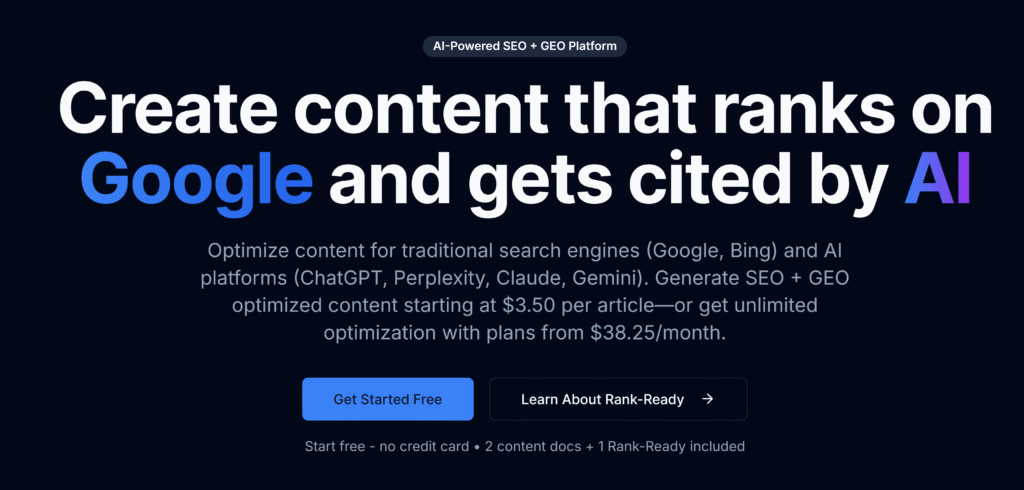
Frase excels at analyzing top search results instantly to surface key topics, headers, questions, and statistics. Users can generate full-length, optimized content briefs in just 6 seconds using AI. The platform visualizes essential SERP metrics like word count, domain rating, and heading count, helping you build data-backed content strategies. Frase’s unified content editor incorporates optimization, competitor research, and AI writing capabilities, with pricing starting at $15/month. Trusted by 30,000+ content creators and marketing teams, it’s particularly valuable for those needing both optimization and AI writing functionality in one place.
Jasper: Best AI tool for high-quality long-form content

Jasper shines when it comes to creating substantial, in-depth content that maintains quality throughout. The AI platform understands context and can generate everything from blog posts to white papers with remarkable coherence and flow. Its SEO mode helps ensure your long-form content meets search engine requirements while maintaining readability and engagement. Jasper offers templates specifically designed for different content types, making it easier to create optimized pieces regardless of length or complexity.
Copy.ai: Best for quick AI-generated marketing copy
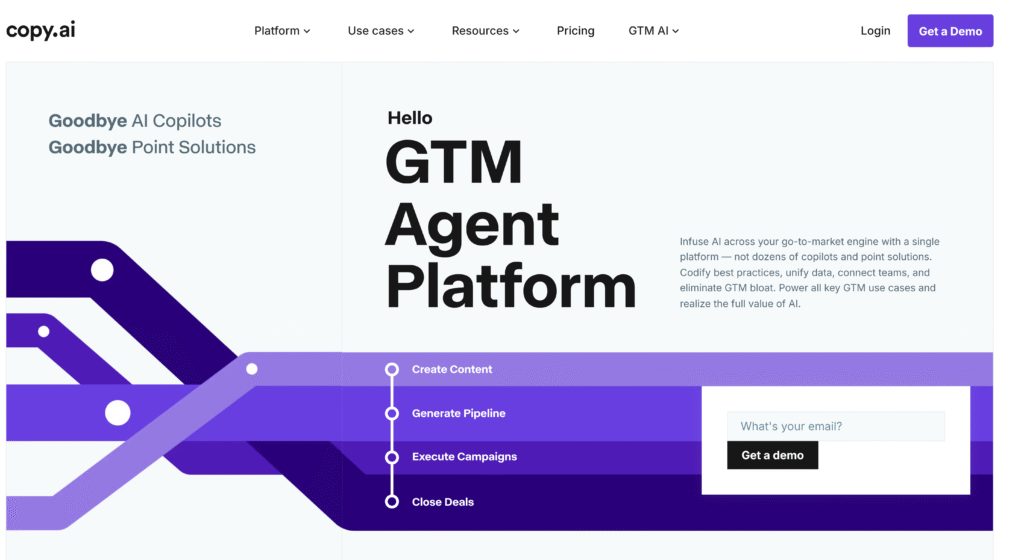
Copy.ai specializes in creating concise, compelling marketing content at scale. Using advanced AI and natural language processing, it produces high-quality copy faster and at a lower cost than traditional methods. The platform excels at generating attention-grabbing headlines, product descriptions, social media posts, and ad copy. Beyond creation, Copy.ai offers valuable insights into audience preferences, trending topics, and content performance metrics, helping businesses continuously refine their content strategies for maximum impact.
Clearscope: Best for easy content analysis and scoring
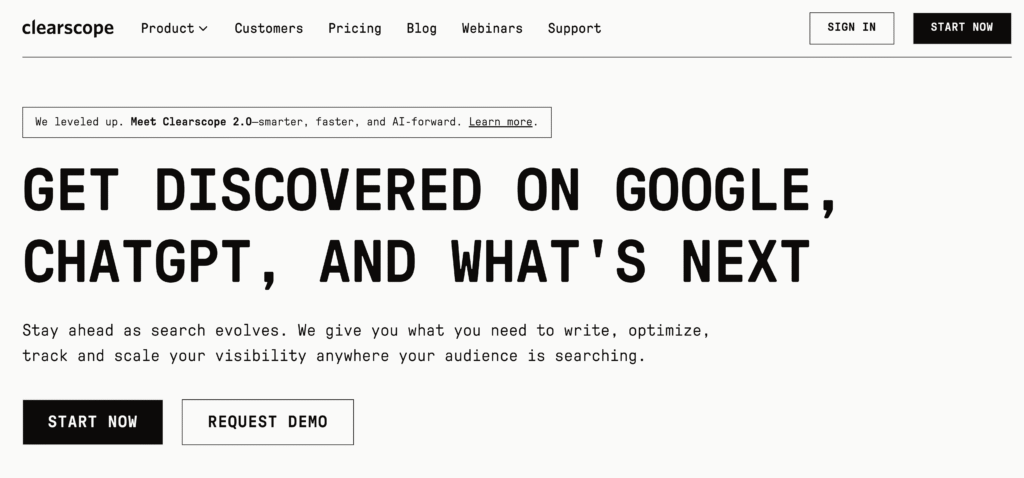
Clearscope simplifies content optimization with its intuitive grading system and clean interface. The AI-powered platform helps create content that appeals to readers, search engines, and AI systems alike. It offers accurate keyword research and insights to find high-impact topics, while providing data-driven guidance to create authoritative content that matches search intent. Clearscope’s reports integrate with Google Docs and WordPress, guiding users on keywords, questions to answer, headers, and readability improvements. Starting at $189/month, users report 10-20% time savings per article and up to 52% increases in organic traffic by following its recommendations.
How to evaluate the best tools for SEO optimization
Check ratings and reviews across the web
Before investing in any content optimization tool, thoroughly research user feedback across multiple platforms. Look for consistent patterns in reviews rather than isolated opinions. Pay attention to reviews from businesses similar to yours in size and industry. Check how responsive the company is to feedback and whether they actively improve their product based on user suggestions. Professional review sites can offer valuable insights, but remember they may have affiliate relationships with the tools they recommend.
Compare features tailored for content audits and analysis
The best SEO tools help you uncover opportunities, analyze visibility drivers, outperform competitors, and build content that ranks and converts. When comparing options, focus on specific capabilities like keyword suggestions (both NLP and semantic), content scoring systems, SERP analysis depth, and recommendations for structural elements like headings and image use. Consider whether the tool offers just basic functionality or comprehensive analysis. Some tools excel in specific areas like competitor analysis or AI content generation, while others provide all-in-one solutions. [Backlinko]
Analyze scalability and integration with your workflow
Evaluate how well each tool will grow with your business and integrate with your existing systems. Consider team size, content volume, and future growth plans when selecting a tool. Check for integrations with platforms you already use, like WordPress, Google Docs, or your CMS. Look at pricing structures to ensure they accommodate your scaling needs without sudden jumps in cost. The right tool should enhance your workflow rather than disrupt it, so consider the learning curve and training requirements for your team. Some tools offer unlimited seats (like Clearscope) while others charge per user, which can significantly impact total cost for larger teams.
Conclusion
The right content optimization tools can dramatically improve your SEO performance by helping you create more relevant, comprehensive, and engaging content. Each of the seven tools we’ve highlighted offers unique strengths, from Surfer’s real-time guidance to Clearscope’s intuitive scoring system. When selecting the best tool for your needs, consider your specific requirements, budget constraints, and how seamlessly it will integrate with your current workflow. By thoughtfully evaluating options based on reviews, features, and scalability, you’ll find a content optimization partner that helps you achieve and maintain ranking success in 2025 and beyond.
FAQs
Which content optimization tools are best for SEO beginners?
For SEO beginners, tools with intuitive interfaces and comprehensive guidance are ideal. Surfer SEO and Frase offer user-friendly experiences with clear instructions and visual feedback. Frase is particularly beginner-friendly with its straightforward SERP research capabilities and affordable starting price of $15/month. Look for tools that provide templates, step-by-step guidance, and educational resources to help you understand the “why” behind optimization recommendations.
Good content audit software should include comprehensive keyword analysis, competitor content comparison, readability assessment, and content scoring systems. Look for tools that offer gap analysis to identify missing topics, SERP feature opportunities, and internal linking suggestions. The best audit tools also provide actionable recommendations rather than just data, helping you prioritize improvements based on potential impact. Advanced features like content decay detection and automated refresh recommendations can save significant time in maintaining your content library.
What features should good content audit software include?
Are free content analysis tools reliable for SEO writing?
Free content analysis tools can provide basic insights but typically lack the depth and accuracy of paid alternatives. They often offer limited keyword suggestions, basic readability metrics, and minimal competitor analysis. While they can be useful for small projects or beginners, serious content creators will quickly outgrow their capabilities. Consider free tools as starting points or supplements to paid options. For comprehensive optimization, investing in a quality paid tool usually delivers better ROI through improved rankings and traffic.

Ridam Khare is an SEO strategist with 7+ years of experience specializing in AI-driven content creation. He helps businesses scale high-quality blogs that rank, engage, and convert.



